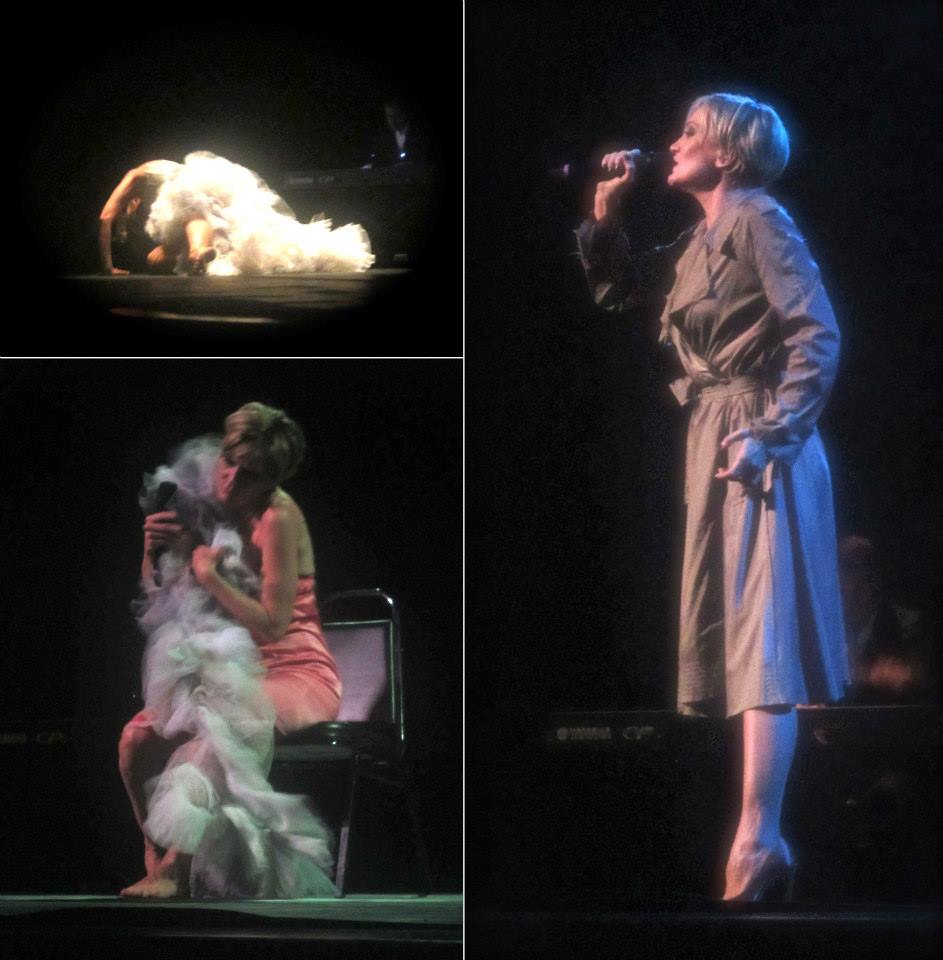There is something triumphal about pop at its best, when it seems that talent has conquered all, and it passes, to accept its laurels, under arches erected, if only for a day, by a public seized with desire and eager already for another victory. That is, if you think about it, the structure of most of our popular concerts, in which the star goes, as if in procession, from one song to the next, building each time in intensity, except to fall back now and then to modulate the excited crowd, until reaching the final place of adulation, and then, after exiting, consenting with mock reluctance to return for just one more number, or two, or three, before retiring to plot the next campaign. There is no small irony in this, as the concert reenacts the vanquishing of the fans themselves, their hearts having been won long before.
I have never seen that so clearly as on Friday night at the Town Hall, when I was among the defeated ones who, thinking with a certain resignation that KAAS CHANTE PIAF might be a tamer and more nostalgic show than would normally be expected from Patricia Kaas, received instead the full force of European pop, albeit leavened by a degree of theatrical sophistication that, if anything, strengthened the ritual and made it all the more stirring. Going into it, I had feared sentimentality, and worse, imitation, this concert having been conceived to commemorate the 50th Anniversary of Édith Piaf’s death. But Kaas knew better than to dishonor her great countrywoman with mimicry, capturing instead the emotive drama of Piaf’s songs and evoking the streets and cafés and cabarets that are their scenic backdrop; the characters in whose voices the songs were written she conveyed in Brechtian fashion, donning trench coats and neckties, dressing gowns and feather boas. She was supported by a lush live band, whose members moved around the stage in consort with the action, and by a male dancer, and she danced herself, with astounding grace, on top of singing in that voice of hers, which could fill universes, or create them. There was a break halfway through, when we watched a film of Piaf, if I recall, and Kaas returned, stylish and bare-legged, her catlike head erect on her tall frame, pop mistress extraordinaire, and at that point did something remarkable, opening the way with a hit of her own, and then pulling Piaf fully and definitively into the present with a rapturous rendition of “La vie en rose.”
KAAS CHANTE PIAF was a triumph of personae, the characters implied by the lyrics, the ghost of their original creator, and finally of Kaas herself. There is a certain type of confidence without which performers of her caliber would not exist, the sort that you would need to kiss a stranger on the street or walk fearlessly through a minefield. She had us pause near the end, when we were already standing, to honor Piaf, as that great artist’s voice played in a recording. The reason we were standing, of course, was in adulation of Kaas, to demand that she not leave us, but give us more. It is a special sort of artist who was able to arrest our enthusiasm in homage to another, while being at the center of attention herself, and, in so doing, capitalize on its irony.
Click here for more on KAAS CHANTE PIAF. Visit the Town Hall here for information on future events.
